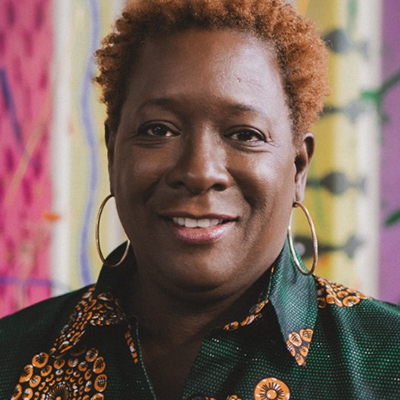
27 November 2023
What are the specific benefits offered by group supervision? Sandra Wilson, an award-winning executive coach, team coach and supervisor, and a keen advocate of group supervision, explores the ways group supervision can enhance professional development.
Coaching is sometimes described as a lonely profession because of how much we work on our own with clients. Group supervision can be a great antidote to coaches feeling isolated or unsupported, but it is also sometimes undervalued. Based on my experience of running supervision groups, and also being a member of supervision groups myself, I believe group work has much to offer in providing a safe space for learning, support, insight and growth.
The value of group supervision
Group supervision supports collaborative reflective practice, diversity of thinking, and building professional networks in a supportive environment. One of the prime benefits is in how it helps us to think outside the box, because of the range of difference experiences, views and perspectives which the group container brings together. Within a group there may often be other supervisees who work with clients outside one’s normal practice, which can add richly to the supervision learning experience. The unusualness of the conversation may ignite a curiosity about new subjects.
For example, I recall one of my supervisees raising the issue of the ‘quarter life crisis’ – this was a new concept for me at the time, and it prompted me to research the topic, which led to some great new insights.
The format and structure of group supervision is that there will be an experienced supervisor – ideally professional trained and qualified – who holds the responsibility for setting up and gently guiding the group process. A key role of the supervisor is in helping co-create a sense of safety, openness and willingness to be vulnerable.
The supervisor may provide guidance to the group via direct observation, feedback and perhaps at times some expert instruction. This may include a mix of peer-to-peer dialogue and also reflection guided by the supervisor. Group supervision provides supervisees with a diversity of perspectives on their issue and the bonus of learning about the other topics presented by other participants. It also enables supervisees to learn about group dynamics, be exposed to different supervisory approaches, and build professional networks. Group sessions can be particularly suited to exploring more generalized topics such as wellbeing or exploring new models.
Group supervision can come with risks, particularly around psychological safety. We all bring our own previous experience of groups, both conscious and unconscious, to each new group setting. So group supervisors need to be well attuned to what creates safety in groups, so that learning is not inhibited.
What about other types of supervision?
Group supervision is not a replacement for 1-1 supervision, particularly if the focus for the supervisee is more personal to their own development and how this impacts their practice. Individual supervision can be much more tailored to the specific needs of the supervisee. So it can be great to experiment with having both group and 1-1 supervision, as they each offer different things.
Peer supervision is another option. As the name implies, this is where a group of peers meet in pairs, trios, or larger groups – without a trained supervisor who has the explicit responsibility of holding the group process. A peer supervision group can be easier to set up because a qualified supervisor may not be readily available. There are also cost advantages, and the peers choose to work with each other, providing support, challenge and perhaps advice to each other.
Although peer supervision offers a valuable form of support and development, there are disadvantages which make it inadvisable for practitioners to rely solely on peer supervision as their only means of accessing supervision. These challenges include a potential lack of supervision skills within the peer group, risk of collusion and avoidance of challenge, and perhaps insufficient diversity of perspectives.
So what happens in group supervision?
All supervisors have their own unique approach to group supervision, drawing on their own experience, training and personal preferences. I share below what I have discovered works for me and my supervisees within my practice. I work with two types of groups:
• Closed group – here I have a maximum of six people in the group. This is for supervisees who want to commit to working with the same cohort for a 12 month period. We meet quarterly for a three-hour online session. At the end of the year, the members of the closed group may decide to recontract for a further year. The types of groups which tend to select this mode of delivery are supervisees from the same organisation; students studying to become coaches; and newly qualified and highly experienced supervisees. As part of our contracting, it is envisaged that the group will grow and develop together over the year.
• Open group – this is a drop-in session format. Each session is limited to three or four people. Supervisees can book themselves for one of the dates and turn up for the three-hour session. There is no commitment to continue with the group over time. The group includes supervisees of differing experience and backgrounds. This type of group supervision keeps me on my toes because I have only the briefest of details, and it is interesting to see what comes up for discussion. It can be useful for a coach needing ‘just in time’ supervision, if something has cropped up in their client work.
For both types of group supervision to be successful, I find that it is useful to have a structure. There is an agreed contract for working together which is underpinned by Nancy Kline’s Time to Think philosophy. This provides a framework that supports, for example, deep listening, respect, and equality. I also incorporate elements of Brené Brown’s work on psychological safety and vulnerability, and the work of Carol Dweck on Growth Mindset. My approach is underpinned by an adapted action learning set methodology, interlaced with my extensive knowledge, which I draw on to help support, challenge, and stretch my supervisees.
To ensure inclusivity, I ask participants beforehand if there are adjustments that need to be in place to support them in their learning. This could mean, for example, that they require additional time to explain their issue, or perhaps keeping the captions on if there is a hearing challenge.
All my sessions are online. Supervisees are requested to bring for discussion a topic which is suitable for group work. At the start of the session, everyone is given a short time to outline their topic. In the closed group, the participants can decide to vote on whether to focus on the top three or four topics, particularly if there are overlapping themes, such as confidence building. Alternately, they may decide to divide the time up equally to discuss all topics. For the open group, generally all topics will be discussed and given an equal time.
Once the topics have been selected and placed in order, the timed conversation will then take place. When the issue is outlined, the only cameras on will be for the conversation between the supervisee and the supervisor. When this is concluded, participants are encouraged to ask questions, and provide their observations and feedback, before wrapping up.
So this is my take on group supervision. One of the great things about supervision is the rich diversity which comes from each supervisor having their own unique approach. But what will be common across all types of supervision is the potential for deep learning within a group environment. If you haven’t tried group supervision, or you don’t currently access group supervision, I hope some of what I’ve shared might inspire you to take a fresh look.

About Sandra Wilson
Sandra Wilson is an award winning EMCC accredited coach, mentor, team coach and supervisor. Sandra has over 30 years of experience across the public sector, including local, regional, and central government. She has led coaching and mentoring services within the Cabinet Office and the British Transport Police. Sandra recently launched her own company, SW Coaching and Consultancy Ltd. She is an author, and has contributed to a new book, Black and Menopausal. This was driven by her passion to raise the issues of menopause within the African and Caribbean communities. Sandra has published articles for Coaching at Work magazine, and been a guest speaker at numerous international coaching conferences. She was a guest on the EMCC UK’s recent podcast series on internal coaching supervision.
Photo by Surface